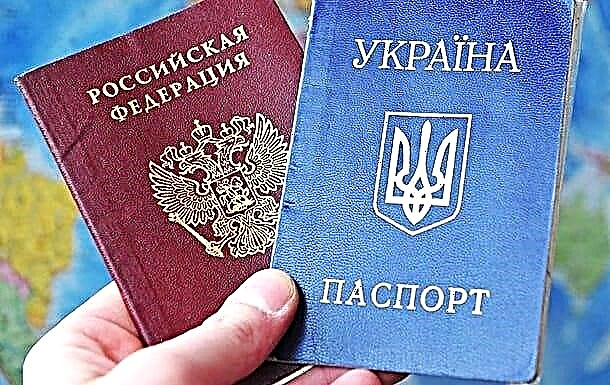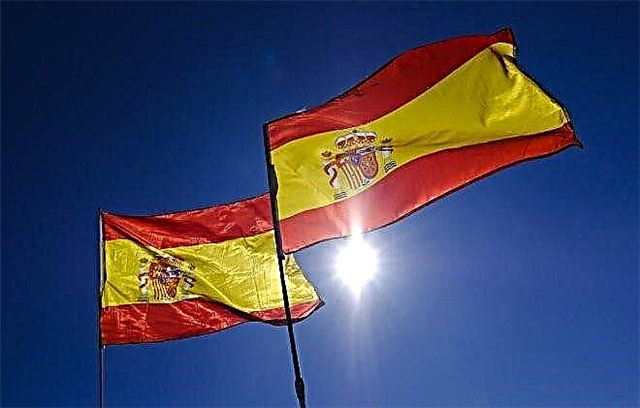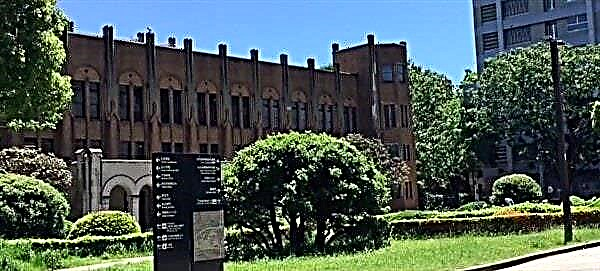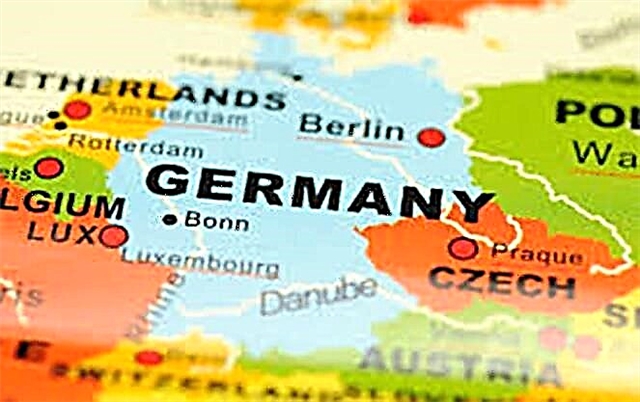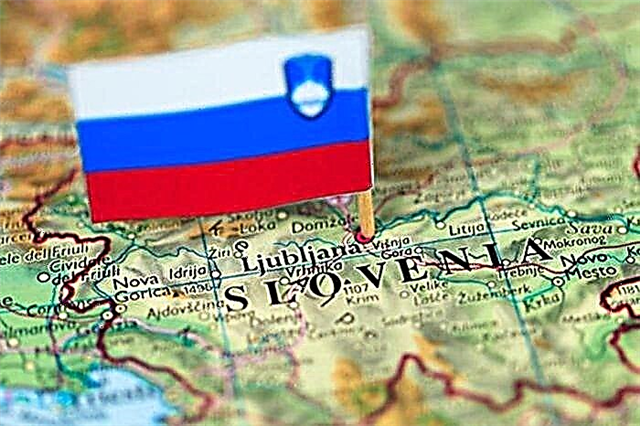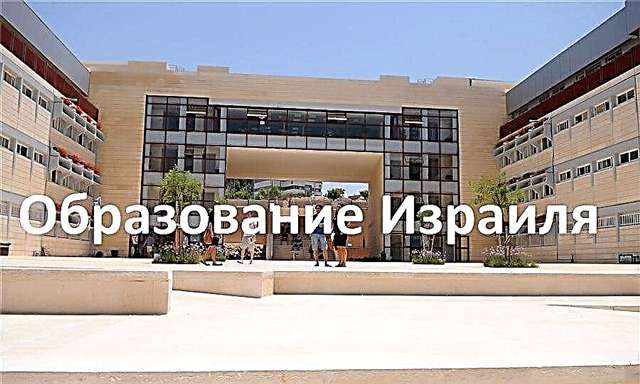The Finnish education system is rightly recognized as one of the best in the world. Six Finnish universities ranked in the top 400 by recognized rankings QS (Quacquarelli Symonds) and THE (Times Higher Education)... And the University of Helsinki occupies a worthy place in the first hundred ratings.
Higher education
In terms of the quality of teaching certain disciplines, many Finnish educational institutions are even included in the world top 10.

| Finnish higher education rankings | Points |
| World popularity rating | 34 |
| Average University Rankings (Worldwide) | 18 |
| Reputation with employers | 37 |
| Teaching quality | 11 |
| International student to local ratio index | 31 |
The most important advantages of studying in this country are:
- Recognition of diplomas in most European countries;
- Large selection of English-language programs and courses;
- Free training in the state languages;
- High practical value of education.
If one of the goals of studying in Finland is to get a job and move to a permanent place of residence, it should be borne in mind that those who received an education in English have little chance of finding a job in Suomi.
Almost all employers, in addition to a diploma of education, require applicants to know the Finnish language. But even if a non-resident graduate is fluent in the language, his chances are not very great.
Even with the low unemployment rate in the country, the competition for jobs among graduates is very high. And all other things being equal, employers always prefer locals.
At the same time, diplomas obtained at universities and polytechnics in Finland are quite competitive when looking for a job in the countries participating in the Bologna system (and this is almost all the countries of the European Union). Therefore, the chances of getting a job in Europe with a Finnish diploma are very high.
Admission to Finnish universities
You May Also Like
Recruiting of applicants is held in autumn and spring. Spring applicants usually have the opportunity to choose from a wide variety of study program options. You can apply for some destinations in the middle of winter.
After the end of the 9th grade, you can only enter a Finnish school or college. This will allow you to better learn the language and simplify further studies at a university or polytechnic university. In fact, such an applicant will be equated to a local applicant.
After completing 11 grades at a school in Russia or the CIS countries, you can apply for admission to Finnish universities. For this category, the application and admission procedure is the same as for all foreign applicants.
Depending on the type of educational institution, training according to basic educational standards has the following terms:
| Educational program | Training period |
| Undergraduate | 3-4 years |
| Master's degree | 1-2 years |
| Doctorate | 2 years |
| Licentiate | 2 years |
Given the presence of certain programs and educational standards in each educational institution in Finland, students are endowed with a certain freedom of choice of academic subjects and disciplines. Within the framework of the program, each student can determine the intensity of the classes that is comfortable for himself and adjust his work plan. Self-motivation and responsibility of the students themselves for the quality of their education is at the forefront. Teachers only help in this. In Finnish universities, attendance is not strictly controlled: involvement in the process is everyone's personal business.

The educational program of each level at a particular university or institute contains a list of compulsory disciplines for study. In addition, the student can add subjects to the individual curriculum at his own discretion. Thus, individual development is carried out without compromising educational standards.
The aim of the Finnish education system is the right to individual development of everyone in the learning process. This approach has been introduced since the preschool level and is familiar to the Finns. The scores are just feedback, an indicator of an individual's area of development and growth.
If there is a system of control over the level of knowledge in the form of reports, exams and tests, the attitude towards them is calm. Any low grade can be improved in the process. Therefore, such tricks and tricks as cheating and cheat sheets are not honored.
In the curriculum, part of the study time is officially devoted to self-education and homework. Much attention is paid to group and practical work - universities cooperate with many companies. This approach perfectly prepares students for future work, allows them to develop communication skills.
Much attention is paid to the field of practical application of knowledge: many disciplines are taught by practitioners - people working in Finnish and international companies. Students often do internships.
Types of educational programs
All Finnish higher education institutions provide education according to the following programs (standards):
You May Also Like
Kandidaatin tutkinto - Bachelor.The duration of the program depends on the type of educational institution:
- An ordinary university provides a theoretical knowledge base. The training program lasts 3 years. In such universities, a bachelor's degree is just an entry level. After completing a bachelor's degree, most students continue their studies in a master's degree;
- The Applied University prepares bachelors for 4 years. After graduation, the graduate can start work, since he has a sufficient base of applied knowledge.
Maisterin tutkinto - master.A master's degree, as a higher educational level, guarantees a wider choice of work for graduates, therefore it is very popular. Depending on the direction of study, this program can last from 1 to 2 years. For some specializations, professional practice is required.

Tohtorin tutkinto - doctor.Doctoral programs are designed for 4 years. The postdoctoral graduate receives a Ph.D. and the right to teach.
Lisensiaatin tutkinto - licentiate.Alternative option for doctoral studies. The duration of the programs is 2 years. Mostly popular with working students. This program is interesting for those who want to improve their educational level and participate in scientific research.
There are two main types of higher education institutions in Finland:
- Classical universities (yliopisto)providing basic, fundamental education;
- Polytechnics (ammattikorkeakoulu)focused on applied disciplines.
Finnish universities can award bachelor's and master's degrees, here you can also take doctorate and licentiate if you wish. Polytechs, however, have only recently begun to award master's degrees.
Requirements for admission
Today, a large number of educational programs in English are presented in Finland. These are both bachelor's and master's levels. But only educational programs in Finnish and Swedish are free.
The level of English on the IELTS test for admission to a Finnish university must be from 6 for bachelors and from 6.5 for masters and doctors.

Conditions for admission to Finland:
| For admission to a polytechnic university | For entering university |
|
|
| For admission to a Finnish university, the selection committee will consider the results of the unified state and entrance examinations. But the decisive role is played by the results of the entrance tests. Each university has its own approach. Some tasks involve preliminary preparation, for example - studying the company's annual report, which will then be asked questions. |
Separately, it should be said about the entrance exams to Finnish higher education institutions. The approaches differ in many respects from those that are customary in Russia and the CIS countries.
Tasks for entrance exams are intended at most not to test the baggage of the applicant's knowledge, but to determine such categories as:
- Ability to study and analyze information;
- Teamwork skills;
- Creativity;
- Creativity.
Often, exams use real reports from Finnish companies. For a certain period before the start of testing, applicants must familiarize themselves with the material, and at the very entrance test, questions and practical tasks, both individual and for work in a group, will be offered on it.
Often, as tasks, it is proposed to conduct SWOT-analysis of any object.
List of required documents
For a short stay in the country (less than 3 months), for example, to take language or other preparatory courses, it is enough to have a Schengen visa.
If you are planning a longer stay, you will have to apply for a so-called "permit to stay in the country." Its validity period can be from 1 to 4 years, depending on the purpose of stay and the documents submitted for consideration.
This document is also called "Student Visa". It is issued by the country's migration authorities about 2-3 weeks after the application and the necessary papers are submitted. Failure cases are no more than 5% ... When the document expires, it is easy to renew it throughout the country by submitting an approved form to the police station.

To obtain a study visa, the Embassy must submit documents according to the list below (in duplicate - originals in Russian and translation into Finnish, Swedish or English - by choice):
- An invitation from an educational institution (even a copy of a printed e-mail with official information on admission is considered);
- Bank statement confirming the availability of the amount from the calculation 6,720 euros for a year of stay, which corresponds to the living wage in the country;
- Completed application form in one of three languages - Finnish, Swedish or English, in the amount of 2 pieces;
- Passport valid until graduation;
- Photos 47 X 36 mm, 2 pcs .;
- Education documents (certificate or diploma);
- Insurance policy with insurance coverage for the entire period. Moreover, if the period is less than 2 years, then the amount of coverage is from 100 thousand euros... If more - from 30 thousand... A person living in the country for more than 2 years has benefits like all native Finns, so the amount of coverage may be less;
- Confirmation of payment of the registration fee in the amount €330.
For minors, only an adult (one of the parents or guardians) can issue an exit permit.
It should be noted that in summer and autumn the Finnish embassies are very busy, so it is better to apply for a visa immediately after receiving confirmation of admission.

Cost of education
Until 2016, both local and foreign students could get free education in Finland. However, the country's government decided to follow the path of monetizing education for visitors. This innovation has affected the bachelor's and master's programs in English.
Doctoral programs and studies in Swedish or Finnish are still free of charge.
Approximate tuition fees for some universities in Finland are shown in the table. It should be noted that applied, polytechnic universities, on average, will cost less than classical ones. And those located in small cities, respectively, are cheaper than in the capital and large cities.
| Name | Tuition fee for a bachelor's degree, USD | Master's tuition fees, USD |
| Helsinki University | 17 000 | |
| Turku University | 13 700 | |
| Aalto University | 13 700 | 17 200 |
| University of Oulu | 11 500 | 12 600 |
| Jyväskul University | 2 000 | 11 500 |
| University of Eastern Finland | 13 700 | |
| Tampere University of Technology | 11 500 | 13 700 |
| Lappeenranta University of Technology | 9 100 | |
| Vaasa University | 13 700 | |
| Turku University of Applied Sciences | 11 000 | 11 000 |
Free education opportunities
All educational programs in Finnish and Swedish are free of charge. Therefore, knowledge of the language is a safe bet. There are not many opportunities for English-language learning.
The most realistic chances of studying in Finland without large financial costs are provided by the programs of the Government of the Russian Federation. Talented children, in whose arsenal there are significant achievements (victories in all-Russian and international Olympiads in subjects, research, publications, inventions), can receive a government scholarship that pays not only for study abroad, but also for maintenance during their stay in the country.

Government grants and scholarships in Finland itself are mainly designed for doctoral degrees. They are awarded according to the results of scientific work, as well as to the Finno-Ugric peoples of Russia for the preservation of national culture. The latter are provided in the field of ethnography, history, ethnology and other areas in the field of culture of the people.
Bachelor's and master's programs that are taught in English do not receive support from the Finnish government. Finnish university scholarships for English-language programs are rare and can only be applied for by those who have already completed a bachelor's degree.
Exchange programs
There are student exchange programs in Russia. To become a participant, you need to be a student of an educational institution that participates in an international exchange program (CIMO, Center of Interbational Mobility). It mainly affects the areas of economics, ecology, tourism and natural sciences.
Accommodation and meals for students
The most realistic and relatively inexpensive options for accommodation and meals for visiting students in Finland are student dormitories and canteens. They are not provided free of charge, but some scholarships may cover these costs.
If you have the financial resources, you can rent housing, but you have to be prepared for the fact that it is very expensive. It is worth renting a room on the periphery from 300 euros per month... The price of a set lunch in an inexpensive cafe starts from 15 euros.
Having a fairly free academic schedule, students can find a part-time job without compromising their studies. This can be of great help while studying in a northern country.
Most popular universities in the country
- Helsinki University - Helsingin yliopisto. The first university in Finland, founded in 1640. It is the oldest and most prestigious educational institution in the country, ranking high in world rankings. The university is famous for its multidisciplinarity, scientific research (under its auspices, the League of European Research Universities LERU was created). The strongest areas are considered philosophy and media research.
- Turku University - Turun yliopisto. Ranked the second largest in the country. Founded in the 20s of the last century. Its feature is versatility. The most powerful are the medical and pedagogical faculties.
- Aalto University - Aalto yliopisto. A fairly young (about 20 years old), but already well-established university.The level of training of architects and designers at this university is very high. The university is included in the top 20 world rankings in these areas.
- University of Oulu - Oulun yliopisto. The strongest areas of this university are computer technology, medicine and environmental technology. Oulu is included in major world rankings due to active development and great attention paid to scientific research.
- Jyväskylä University - Jyväskylän yliopisto. Jyväskylä University is renowned for its postgraduate education. Master's and postgraduate programs are very popular. Actively participates in student exchange programs around the world. The strongest areas are psychology and pedagogy. When preparing teachers, much attention is paid to inclusive education.

Reviews about studies
Anna, 19 years old - student at the University of Jyväskylä:At school I was an excellent student, but the entrance exams were not easy for me. The questions and tasks were very non-standard. My advice to future applicants: if you do not know the exact answer to the question or cannot solve the problem, write everything you know on this topic - formulas, definitions, reasoning. For many tasks, thanks to this tactic, I received fairly high scores and was able to pass the competition. I have been studying for a year now. I like the openness of the teachers. You can sign up for an individual consultation with anyone and, when you meet, get answers not only to questions about your studies, but also life advice.
Veronica, 18 years old - student at the University of Turku:I applied for the autumn recruitment. But I didn’t get it the first time. The entire exam was based on the annual report of the local company, which was pre-posted on the web. Most of the questions were related to the material in this report. I was not ready for this. After the failure, I devoted six months to attending special courses, where we were taught how to work with information correctly. I have already been able to enter the spring enrollment. I like that the courses are taught to us not only by university teachers, but also by invited employees of companies who know everything from a practical point of view. I am delighted with the spirit of freedom that prevails at the university! It is wonderful that independent and homework is included in the curriculum - the number of hours for this is taken into account so that you can calmly and thoroughly do everything and hand it over on time.
If you set yourself a goal and make an effort, you can become a student in Finland and get a decent education of the European level, even without having a lot of money.

